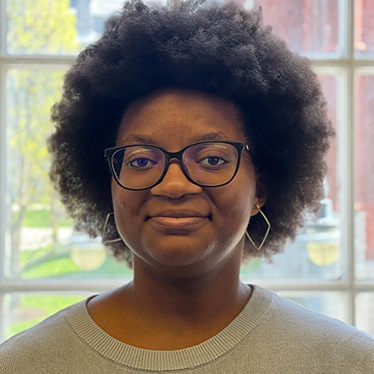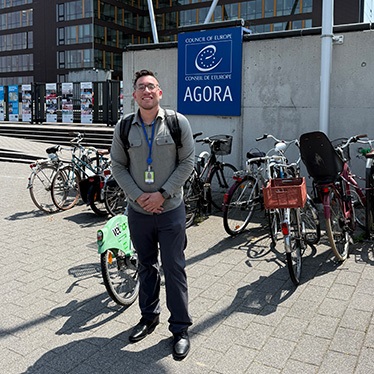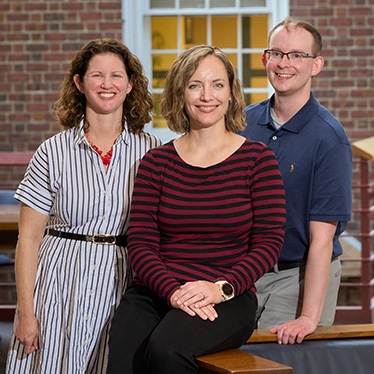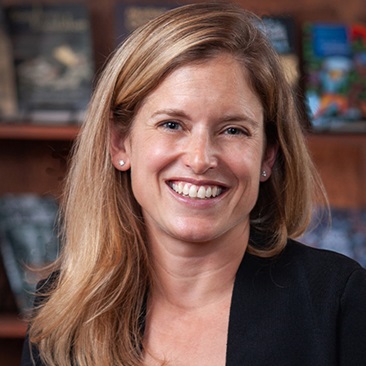COVID Research Project Garners up to $2.2 Million From the National Institutes of Health
December 12, 2022
Associate Professor Emily Wiemers is the principal investigator of the team that includes her Maxwell School colleague, Marc A. Garcia.
Emily Wiemers, associate professor of public administration and international affairs and O’Hanley Faculty Scholar, is the principal investigator for a COVID-19-related research project that is expected to receive up to $2.2 million from the National Institutes of Health (NIH) over the next five years.
The project, titled “Tracing the Health Consequences of Family Support during the COVID-19 Pandemic,” is examining how the economic and health effects of the pandemic rippled across generations in American families.
Another Maxwell School faculty member, Marc A. Garcia, assistant professor of sociology, is a co-investigator along with I-Fen Lin of Bowling Green State University, Judith Seltzer of the University of California, Los Angeles, and V. Joseph Hotz of Duke University.
The project began in September 2022 and runs through May 2027. The NIH has provided $445,396 in funding for the first year.
The project will create a database of the economic, policy and health care contexts in which individuals experienced the pandemic. It will be linked to two nationally representative surveys of extended families to describe the degree to which family members shared the same challenges during the pandemic and how this affected their ability to help each other with time, money and shared housing, explains Wiemers.
“The project focuses on the pandemic’s immediate and intermediate effects on health, whether it exacerbated health disparities, and if family support mitigated negative health effects,” she adds.
Wiemers is a faculty associate in the Aging Studies Institute and a research affiliate in the Center for Policy Research and the Center for Aging and Policy Studies. Her work examines intergenerational ties and economic well-being across the life course.
Garcia is a senior research associate in the Lerner Center for Public Health Promotion and Population Health, a faculty associate in the Aging Studies Institute, and a research affiliate in the Center for Aging and Policy Studies. He researches physical and cognitive health disparities among older racial/ethnic and immigrant adults and longevity and mortality outcomes among older Latinx subgroups.
“Emily Wiemers, Marc Garcia and their colleagues demonstrate the relevance of evidence-based research to understanding the complex policy issues facing our communities and the nation,” says Dean David M. Van Slyke. “To receive funding from NIH that supports faculty research with the involvement of students to inform and shape how policy makers think about the consequences of health disparities and their impacts is a strong signal of support for the quality of Maxwell scholars and the importance of their work.”
This grant adds to the millions in funding for COVID-related research already garnered by Maxwell faculty in the past two years—much of it from the NIH.
Wiemers is leading a two-year project to investigate the challenges for adult children caring for aging parents. She’s also a co-investigator on a five-year project studying the connection between policy and psychological health; headed by Shannon Monnat, professor of sociology and Lerner Chair in Public Health Promotion and Population Health, the project also includes Maxwell co-investigator Jennifer Karas Montez, University Professor and director of the Center for Aging and Policy Studies, and Douglas Wolf, Gerald B. Cramer Professor of Aging Studies.
Garcia, meanwhile, has worked to assess how the pandemic has affected specific segments of the population. For instance, by comparing data on deaths in 2020 and 2021, he found that Blacks and Latinos died from COVID at much higher rates than whites, but some states—New York and Illinois, for instance—were much more successful at reducing that disparity than others, notably California.
Published in the Spring 2023 issue of the Maxwell Perspective
Related News
School News

Nov 25, 2025
School News

Nov 24, 2025
Research

Nov 3, 2025
School News

Oct 16, 2025

